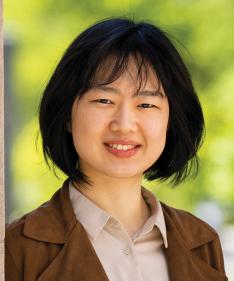
According to the University Archives, 2D started in 1977 because of student dissatisfaction with the campus dining experience and cost, as well as rising vegetarianism and veganism. Today, 2D continues to provide an affordable, communal, and meatless option for upper-year undergraduates and a few lucky graduate students like me who happen to hear about it. For $600 a semester, members can eat dinner every day and brunch on weekends. The cost is brought down by the fact that everyone works in the kitchen. Each member joins a weekly cook shift and has an additional “chore” — for example, baking bread and desserts.
An unexhaustive list of the food made here includes risotto, curry, tacos, and scallion pancakes, as well as granola, banana bread, babka, madeleines, and conchas. For produce, 2D purchases mostly seasonal vegetables (hello, squash!) and fruits from local suppliers. The co-op has introduced me to a new world of substitute ingredients: vegan butter and yogurt, tamari, tempeh, and so on. It also reconnects me with old acquaintances. One day, opening the condiment closet door, I found myself staring at three tall jars of Laoganma spicy chili crisp sauce. Its founder, nicknamed the “Chinese goddess” by overseas Chinese students, gazed solemnly back at me.
Having been conditioned to question the efficacy of student organizations in the different countries on my academic trajectory, I’m impressed by 2D’s functionality. Perhaps it’s because 2D members are generally tolerant of one another. I learned this after forgetting to put baking powder in one of my biscotti doughs and yet still finding those “bricks” consumed within a few hours. Or perhaps it’s the inclusive and communicative atmosphere. In less than one full semester, I’ve been persuaded to try out activities like garba (a Gujarati dance) and curling (the ice-based Olympic sport), and to attend a campus workers’ protest. Now I’m serving as the captain of 2D’s new dodgeball team — how I was convinced in this case is still beyond me.
Only six of the 47 current members are vegan. Those who know history can recognize how easy it is for minority rights to be eaten away — and anyone can be in the minority under the right (or wrong) circumstances. It’s therefore on all of us to constantly remind ourselves of others’ needs in order to coexist.
Such reminders take place in daily interactions and biweekly general assemblies. In one October session, a member challenged the ethics of 2D buying eggs, arguing that it would entice the non-vegan majority into consuming more, if only to avoid waste. Others demanded that eggs be purchased (from ethically certified suppliers) because people paying the membership fee deserve what they want to eat, barring meat.
“We should vote,” one suggested, to which another responded by questioning majoritarian decision-making when the stakes for everyone are not the same. Indeed, vegan members later voiced concern that at this rate, vegan dishes might become optional in 2D (right now, they’re guaranteed at dinner). The 40-minute meeting was followed by animated discussions in a Discord channel dedicated to this “eggsistential crisis” (to quote a fellow member).
In 2D, I’ve experienced a politics of difference, a liberal amount of candid exchange, and a critical pinch of humor — a valuable but rare recipe worth celebrating.

